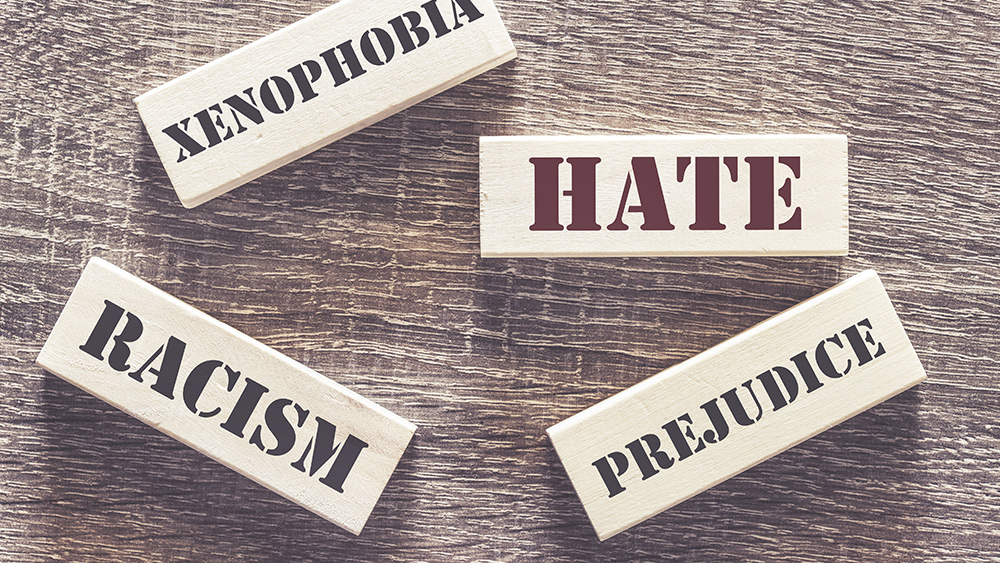The 1964 Civil Rights Act destroyed the 14th Amendment and resurrected status-based law
11/10/2023 / By News Editors

“From status to contract” was the way Sir Henry Maine described the emergence of equality before the law from the status-based law of the past when class distinctions determined rights.
(Article republished from PaulCraigRoberts.org)
Today in the US and Great Britain race distinctions determine rights, with “people of color” having higher rights than white citizens who have been reduced to second class legal status based on skin color.
Alfred W. Blumrosen, Compliance Chief of the Equal Employment Opportunity Commission, made white Americans second-class citizens when in defiance of the statutory language of the 1964 Civil Rights Act and the US Constitution he established a system of racial privileges for black Americans in university admissions, employment and promotion. The system of racial privileges Blumrosen established forced universities to admit black students ahead of more qualified whites and forced employers to hire and promote blacks ahead of more qualified whites. Blumrosen’s system of disparate rights in violation of the 14th Amendment was hidden under the term “affirmative action.” (See The New Color Line, 1995.)
Universities, employers, and the judicial system complied with Blumrosen’s illegal and unconstitutional dictate for 58 years. After more than a half century of holding back more qualified whites in order to give racial preference to less qualified blacks, on June 29, 2023, the US Supreme Court banned race-based admission privileges for blacks, but as Heather Mac Donald wrote in The City Journal the Court’s ruling left open ways around the prohibition.
Indeed, as Renu Mukherjee reports in the Autumn 2023 issue of The City Journal, the Supreme Court’s ruling is being vacated by the abolishment of objective merit-based standards in school admissions by both universities and elite high schools. Racial preferences are used indirectly through such schemes as an Economic Need Index and poverty rates that guarantee a certain portion of admissions to those in these categories. These schemes are called “race-neutral” although they have a disproportionate effect on unfavored races. Mukherjee explains the schemes in The City Journal.
The response to the Supreme Court’s effort to reestablish equality in law, sometimes called equal protection, is to abolish a merit-based society. Quotas remain in force, but they are now in the form of economic class in place of race, and in contrast to the status-based rights of the past, it is the lowest economic class that has the privileges.
When elite high schools, such as New York’s Stuyvesant High School, Bronx High School of Science, and Virginia’s Thomas Jefferson High School for Science and Technology, are saddled with students who cannot compete for admission on the basis of ability, the schools’ standards have to be reduced in order that the privileged cadre does not graduate at the bottom of the class or not at all. The same for universities.
The consequence of reduced standards is obvious. Graduates are less capable and the competitiveness of the United States declines. The cost of the racial preferences is not only the sidelining of the careers of more capable youth but also a decline in the overall capability of a country with declining standards of performance. This is another way, along with the offshoring of American manufacturing jobs, that the US is being transformed into a Third World country. The real effect of the 1964 Civil Rights Act was to destroy a merit-based society and equal treatment of law.
Read more at: PaulCraigRoberts.org
Submit a correction >>
Tagged Under:
14th Amendment, Alfred W. Blumrosen, anti-white, biased, big government, campus insanity, Civil Rights Act, conspiracy, culture wars, education system, identity politics, left cult, political correctness, pro-black, public education, race relations, race war, race-based admission, racial equality, racism, social justice, US Constitution
This article may contain statements that reflect the opinion of the author
RECENT NEWS & ARTICLES
COPYRIGHT © 2017 IDENTITY POLITICS NEWS




















